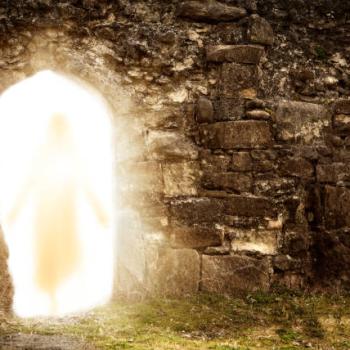
Reading a recent Patheos post by Russell Saltzman on artificial intelligence got me thinking. I’d been reading Karl Rahner again and imagining that I understood some of it. What he says about subjectivity can raise discussions on artificial intelligence to a new level: Does my robot know that it knows? Can there ever be such a thing as artificial self-consciousness? Can we ever know it if there is?
Rahner gives the empirical sciences their full due, including when they probe the depths of the human psyche. He admits that there are, or could be, ways to explain what goes on in my head. From the first inklings of language to my most cherished political convictions, there’s every reason for science to attempt a causal explanation. If I am sociologically and psychologically inclined, I might even know that my opinions and beliefs are not really my own. The same goes for my desires as René Girard has proposed convincingly.
Rahner then takes this analyzing to a new level. He notes that I’ve turned my attention away from things in the world and toward the things in my head. And I discover that, for example, I think the way I do about neo-liberalism because I had an unfortunate incident with a mushroom yesterday while reading Milton Friedman. So that explains that. But now there’s a new thing in my head that’s not yet explained, namely my thinking about the power of a mushroom.
Transcendental experience
That second level thinking might also get its explanation, but that would be a third-level of thinking. Rahner’s insight is that there’s always a level of thinking which I’m not yet thinking about. Still, without thinking about it I am aware of it in some way. In my own words, it’s a kind of living with whatever is going on in my head.
Rahner calls it transcendental experience, operating in the background of every foreground. No matter where I turn my attention, toward objects in the world or toward myself and my thoughts as objects, this experience is behind my attention giving. It is the subjective pole of an experience, and it never becomes an object, or if it does – in a philosophical maneuver like right now – then behind that philosophizing is its own background awareness.
There’s a kind of infinity in this awareness because it always eludes one’s grasp. Thinking cannot contain it. There’s also a kind of certainty because it’s what is behind all certainty and doubt. Without this background nothing could come to a foreground.
Transcendental self-awareness and my intelligent robot
In the title I asked if my robot knows that it knows. I’m going to try out a Yes answer to this question to see if it comes close to the transcendental awareness that Rahner talks about.
Say my robot—let’s call it Robbie—and I play chess. I taught Robbie the basic moves of chess. Robbie also learns from its mistakes so it advances rapidly in chess expertise. Soon it’s beating me every time. I’m not enjoying that so much so I teach Robbie to always play to my skill level. Sadly my skill level is not consistent. It changes with factors including time of day and how tired I am. Robbie can observe its environment so it notices these things. Thus Robbie can decide at what level to play even before the game begins.
Robbie can predict my playing ability on a particular day. Does Robbie know that it knows this?
Suppose my robot has taken a high school math class on probability. After lots of tries, sometimes getting my level of play right and sometimes wrong, Robbie can assign a probability to its guesses about my playing ability. When my eyes are only half open, the probability that I will be playing at level X is Y. The robot knows this about its guesses. It may even know something about the probabilities. Namely, they are never exact but always come in a range, larger or smaller depending various factors.
Robbie is paying attention to its own “mental” operations. It has in its memory both data about me and judgments about the probability that the data is correct. It knows things and it knows that it knows with the same sort of certainty that characterizes most of our knowledge.
An unknowable hypothesis
There are scientific explanations for all of these Robbie phenomena, but then there are or could be scientific explanations for my own acts of knowing. Does the robot have the one extra thing that, in my case, evades all scientific explanations? Does it have that awareness that can’t be explained because it can’t even be thought without disappearing into the background behind that thinking?
It would be a completely unscientific leap to hypothesize that it does. And if I made such a hypothesis, how would I test it? I can’t even test it scientifically on myself because all testing is in the foreground of consciousness and I’m looking for the background. In my case it’s not a scientific conclusion but an experience.
Rahner says I can ignore this experience. I can be so wrapped up in the things that dominate the foreground of my consciousness that I imagine that ‘s all there is. Or I can think of consciousness itself as an epiphenomenon, basically an illusion. But that also is a hypothesis that can never be tested, though some scientists assume it is correct.
Important things follow from the fact that there is something about me that is scientifically inscrutable. I have rights and obligations. I am thrown into an existence that I do not control and yet I am responsible for it. None of these things , as far as we will ever know, apply to Robbie the Robot.
Image credit: Wallpaper Abyss – Alpha Coders via Google Images












